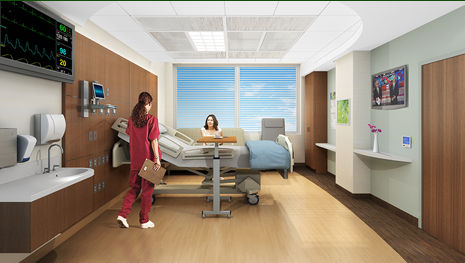The Basis and Need
The status of healthcare in Nigeria and Africa has been in the headlines with reference to the recent Ebola crisis and the continued HIV/AIDS pandemic. As an intervention, AIDE seeks to create a comprehensive, integrated, patient-centered healthcare delivery system with hospitals, health centers, and clinics; providing primary, secondary, and tertiary healthcare services.
At AIDE, we have conducted an introspective review and analysis of healthcare in Nigeria and Africa and discovered the following:
- The continent of Africa bears the greatest disease burden per capita of any other region in the world.
- Many diseases that are rarely seen in developed countries – such as cholera, tetanus and polio – still lead to death in Nigeria, as many healthcare facilities in the country lack necessary resources. ·
- Very few of Nigeria’s state-run hospitals, general hospitals, local dispensaries and private and non-governmental clinics offer better than fair healthcare services, medical equipment and facilities.
- Certain routine pharmaceuticals are not available in Nigeria, and the generic are not necessarily dependable. The preferred brand name over-the-counter medications are scarce.
- The lack of quality integrated healthcare in Nigeria is particularly a stark reality.
- Pharmacies in most Nigerian cities may not stock most of the usual medications seen in the Western economies.
- Emergency medical response times in Nigeria are notoriously slow. A few private medical emergency services are in operation, although coverage in rural areas may be limited.

The need for high quality healthcare option is stronger than ever in Africa; expected to grow exponentially especially in Nigeria. As Africa’s largest economy, GDP ($594 billion in 2014), as well as its most populated nation, Nigeria provides strong economic indicators for this activity.
Rationale for Investing in Nigeria's Healthcare sector
Socio-economic trends impacting Nigeria’s healthcare sector have opened up enormous opportunities for investors. While these trends have been in the last ten years, they will remain an attractive investment vehicle as AIDE seeks to provide corrective actions. The significant notable trend is the estimated 30,000 Nigerians that spend an average of $30,000 annually abroad on medical services that are not readily available to them in Nigeria.
Surging demand for healthcare: As aforementioned, IFC, McKinsey Consulting, and Bill & Melinda Gates Foundation reported in 2008 that Africa will need 550,000-650,000 additional beds to meet demand through 2018. Nigeria alone was estimated to need 100,000 additional beds to meet healthcare demand in a population where 51% of the elite market already uses private health care providers.
Expanding economy and growing middle class: Nigeria, Africa’s most populous country with 177 million people, saw its 2014 GDP reach $594 billion, making it the largest economy on the African continent, overtaking South Africa. Nigeria’s economy is expected to continue its strong growth performance and is projected to grow at 6.0% over the next several years.
Growing importance of healthcare to the Nigerian economy: After the recent rebasing of Nigeria’s economy, the healthcare sector now accounts for at least 5%, or $32.6 billion. Even with its inefficiencies, Nigeria’s absolute healthcare contribution to the economy remains very high.
Enabling legal environment: The Ministry of Health is aggressively encouraging private investments into the healthcare sector and the Senate has supported this move with the passage of a Healthcare Bill in Nigeria.
Global investment community’s growing interest in Nigeria: There is a strong and growing interest among global financial institutions and private equity funds for Nigeria as an emerging destination for investments. Much of this interest is focused on opportunities to invest in integrated healthcare rollouts across the African continent—particularly Nigeria.
Our Services
AIDE’s Accountable Care Organization (ACO) facilities will provide the following services:
- Primary Care - Family Medicine (aka General Practice); Pediatrics, Internal Medicine.
- Specialist Services and Consultations: Cardiology, Diabetes & Endocrinology, Pulmonary and Critical Care, Hematology, Nephrology, Obstetrics and Gynecology, Dermatology, Otolaryngology (aka ENT), Gastroenterology, Neurology, Ophthalmology, Orthopedics, Rehabilitation medicine, Dentistry, Urology, Surgery (cardiac, eye, general, neurology, oral, plastic), kidney dialysis and transplant.
- Auxiliary services: Diagnostics, Emergency & ambulatory, Pharmacy, Physiotherapy
- Consultation & Diagnostics: Advanced technologies for dietetics, ultrasound, radiology & Imaging, monitoring/examination, training/capacity building.